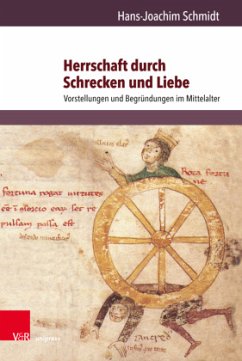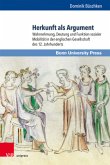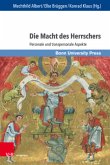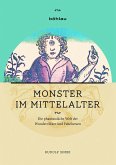Herrschaft gelingt, wenn sie Vorstellungen über Gefühle bei den Beherrschten erzeugt. Nur so wird Herrschaft akzeptiert und ihr Loyalität erwiesen. Zu den Vorstellungen gehört, dass die Herrscher sowohl Schrecken verbreiten als auch Liebe gewähren. Die gegensätzliche Paarung und ihre Verbindung mit der Herrschaft wurden in Texten der Herrscherbelehrung, der philosophischen Überlegungen und der Herrschaftspraxis sowohl zur Kritik als auch zur Rechtfertigung der Herrschaft eingesetzt. Es gab Aussagen, die beide - Liebe und Schrecken - als Herrschertugenden einforderten; andere Aussagen stellten sie in einen deutlichen Gegensatz. Seit dem 13. Jahrhundert wurde zunehmend die Liebe als die Klammer des Staates vorgestellt. Hans-Joachim Schmidt untersucht die an Kontroversen reiche Diskussion während des Mittelalters.
Rule succeeds if it generates conceptions of feelings in the dominated person. Only in this way rule can be accepted and respected. It is part of the conception that the ruler spreads terror as well as love. This controversial pair and its connection with rule were used in texts of ruler instructions, philosophical thinking and ruler practices not only for criticism but also for justifying the dominion. There were statements which both asked for love and terror as virtues of the ruler - other statements put these in a clear contrast. Since the 13th century, love has increasingly been presented as the grasp of the state. Hans-Joachim Schmidt focuses on the controversial discussion during the Middle Ages.
Hinweis: Dieser Artikel kann nur an eine deutsche Lieferadresse ausgeliefert werden.
Rule succeeds if it generates conceptions of feelings in the dominated person. Only in this way rule can be accepted and respected. It is part of the conception that the ruler spreads terror as well as love. This controversial pair and its connection with rule were used in texts of ruler instructions, philosophical thinking and ruler practices not only for criticism but also for justifying the dominion. There were statements which both asked for love and terror as virtues of the ruler - other statements put these in a clear contrast. Since the 13th century, love has increasingly been presented as the grasp of the state. Hans-Joachim Schmidt focuses on the controversial discussion during the Middle Ages.
Hinweis: Dieser Artikel kann nur an eine deutsche Lieferadresse ausgeliefert werden.








